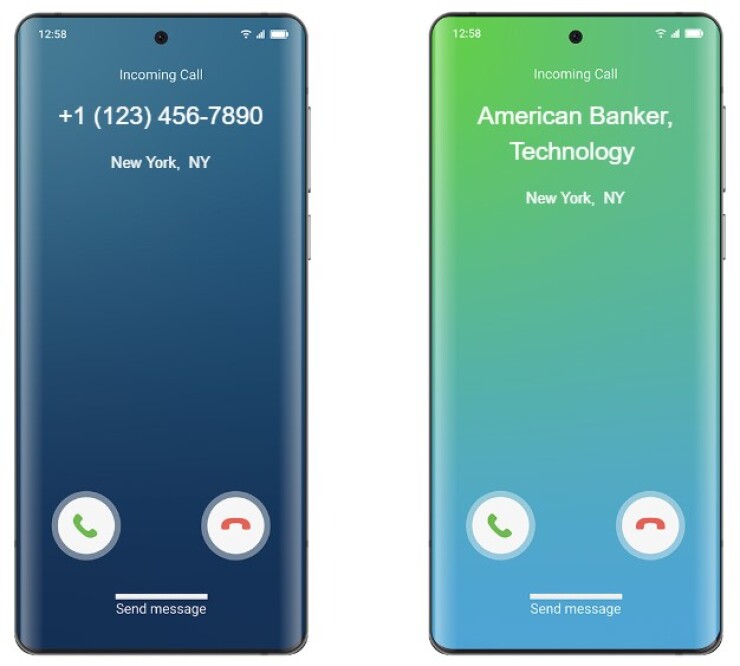
Michael Howe is working to improve how
Since 2021, the $2.3 billion-asset credit union has struggled to reach consumers amid the increasing frequency of spam calls and text messages.
"We were looking to solve the problem of how do we get our members to answer the phone and know that it's us, so we reduce the amount of back and forth. … We'd call and leave a voicemail, then they would call realizing it's us and leave a voicemail in return, leading to this game of phone tag," said Howe, who is senior vice president of information technology infrastructure and operations for Arkansas FCU.
Addressing that friction point led to a partnership with the locally headquartered telecommunications firm First Orion and its branded calling product "Inform," which helps verify and provide a form of caller ID for phone numbers owned by clients.
Once the credit union and its ownership of phone numbers were thoroughly vetted, the fintech worked with Arkansas FCU to determine what names it wanted to link to the numbers so members would be able to clearly identify the caller. First Orion did the work of getting the major carriers to push out the information. In a typical call from the credit union, the customer's caller ID will display the name of the organization and the department reaching out. For instance, if a loan officer places the call, the message on the customer's phone will be "Arkansas Federal Credit Union, Loan Department."

Response rates have significantly improved since the credit union deployed the tool in June, with an 11% increase in calls lasting longer than 60 seconds and a 21% decrease in declined calls.
Other firms required consumers to download an app in order for branding to be applied, Howe said, but the collaboration with First Orion meant "members didn't have to do anything, and the call was still branded, which was a big plus for us," he said.
In recent years, legislators have helped provide clarity on what constitutes potentially unlawful communications, while also introducing
The
While Arkansas FCU's staff make calls manually, the regulations have indirectly influenced how the credit union and other large institutions draft approaches for communicating with customers.
Prior changes also include a 2019 vote by the
In the bigger picture, services like First Orion's that help verify the identity of the caller could help prevent customers from being scammed by fraudsters who try to impersonate financial services firms.
As fraudsters equip themselves with more sophisticated methods such as
"One of the biggest problems that I've seen is people sharing so much personal information on social media, that [scammers] can use AI and machine learning tools to really hyper target certain types of scams," LiaBraaten said.
More than 5.2 million consumer complaints were filed to the
Building trust between consumers and organizations is a crucial element of products such as these, as banks and credit unions across the U.S. continue to weather rampant fraud attempts such as
"First Orion was built around this premise of 'OK, we're stopping the bad guys, how can we help the good guys?' … So many companies have really deprioritized the voice channel and in some cases, even stopped using their voice channel, which we all know is [one of the] most effective ways to communicate with somebody next to being there in person," Stalnaker said.






